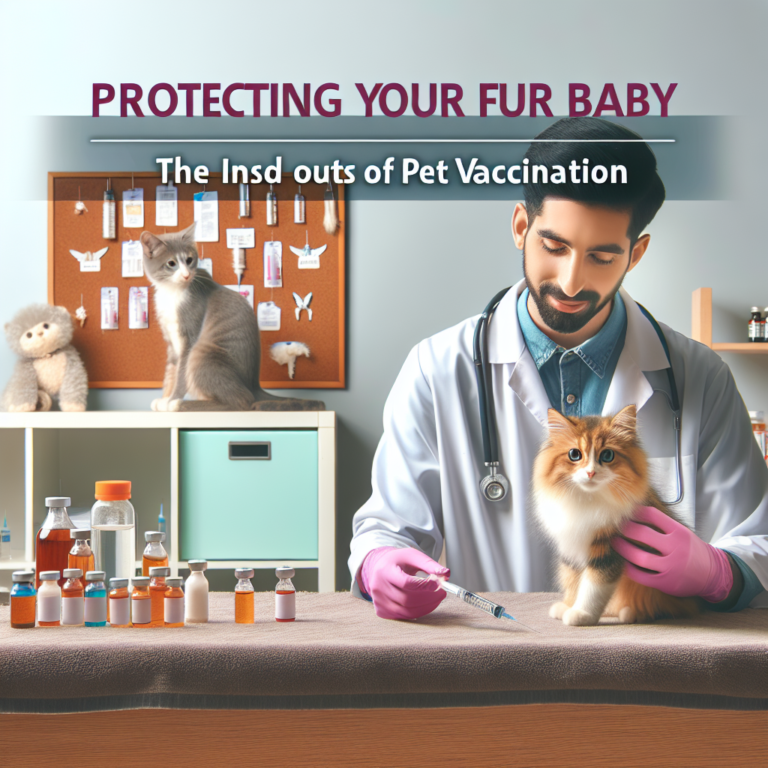As a pet owner, one of the most important responsibilities you have is ensuring the health and well-being of your fur baby. One crucial aspect of pet care is making sure your pet is up-to-date on their vaccinations. Vaccinations are essential for preventing a variety of diseases that can be harmful or even fatal to your furry friend. In this article, we will discuss the importance of pet vaccination and provide some guidance on how to keep your pet protected.
First and foremost, it’s important to understand why pet vaccinations are necessary. Vaccinations help to prevent the spread of infectious diseases that can be easily transmitted between animals or from animals to humans. By vaccinating your pet, you are not only protecting their health, but also the health of other pets and people in your community.
There are a variety of vaccines available for pets, each targeting specific diseases. Some common vaccinations for dogs include rabies, distemper, parvovirus, and kennel cough. For cats, common vaccinations include rabies, feline leukemia, and calicivirus. Your veterinarian can recommend the appropriate vaccines for your pet based on their age, lifestyle, and risk factors.
When it comes to scheduling your pet’s vaccinations, it’s important to follow the recommended vaccination schedule provided by your veterinarian. Puppies and kittens typically receive a series of vaccinations starting at a young age, with booster shots given at regular intervals to maintain immunity. Adult pets also require regular vaccinations to ensure continued protection against disease.
In addition to core vaccinations, some pets may benefit from receiving non-core or optional vaccinations based on their individual circumstances. For example, pets that spend a lot of time outdoors may benefit from receiving additional vaccinations for diseases like Lyme disease or leptospirosis. Your veterinarian can provide guidance on which optional vaccinations may be appropriate for your pet.
It’s also important to keep in mind that vaccination requirements may vary depending on where you live and travel with your pet. Some vaccinations, like rabies, are required by law in many states. If you plan to travel internationally with your pet, you may need to obtain additional vaccinations or health certificates to meet the requirements of your destination country.
While vaccinations are a crucial aspect of pet care, it’s also important to consider the potential risks and side effects associated with vaccination. In general, vaccines are safe and well-tolerated by most pets. However, some pets may experience mild side effects such as soreness at the injection site or mild fever. More serious reactions are rare but can occur, so it’s important to monitor your pet closely after receiving vaccinations and contact your veterinarian if you have any concerns.
Overall, pet vaccinations are a vital part of keeping your furry friend healthy and happy. By staying up-to-date on your pet’s vaccinations and following your veterinarian’s recommendations, you can help protect your pet from potentially life-threatening diseases. Remember, prevention is always better than treatment when it comes to your pet’s health, so don’t wait – schedule your pet’s vaccinations today.
